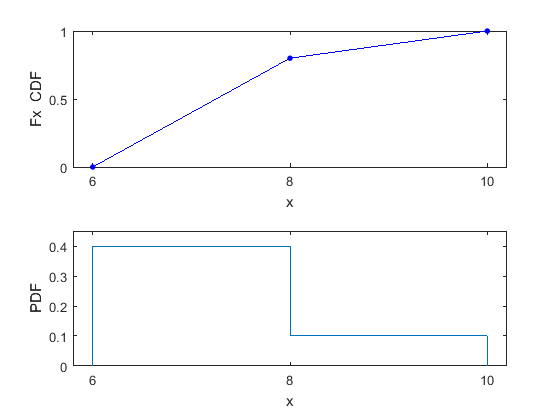makedist
Create probability distribution object
Description
pd = makedist(distname)distname,
using the default parameter values.
Use makedist to specify uniform, normal,
multinomial, piecewise linear, or triangular distribution objects.
If you have Statistics and Machine Learning Toolbox™ software, you can use makedist to
create objects for other distributions, such as the Gamma or Weibull
distributions. For more information, see makedist (Statistics and Machine Learning Toolbox).
To truncate the probability distribution to a specified interval, use truncate (Statistics and Machine Learning Toolbox).
pd = makedist(distname,Name,Value)
list = makedistlist containing a list of the probability
distributions that makedist can create.
Examples
Input Arguments
Name-Value Arguments
Output Arguments
Version History
Introduced in R2014a
See Also
sdo.ParameterSpace | truncate (Statistics and Machine Learning Toolbox)
